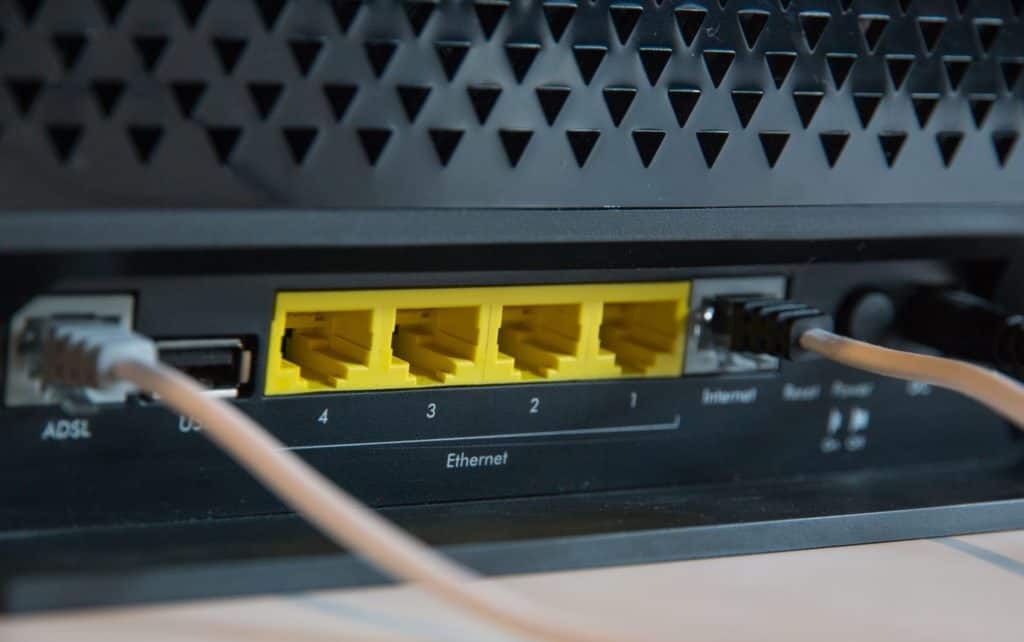Most cable modems last about 4 to 5 years, depending upon hardware quality. However, like any electronic device, it can go bad anytime. That’s why I recommend choosing a modem or modem/router combo with a longer warranty.
Furthermore, various factors determine the lifespan of a modem. These include the processing setup, heat dissipation, usage pattern, etc. So, avoiding modems with bad chipsets, less brand value, and no proper heat vents is a wise decision.
Last month, I surveyed 192 of my email subscribers and asked how often they replace their modems. And I was impressed with the inputs:
- 69% of them said four years
- 18% of them said five years
- 13% of them said three years
Key Takeaway: Based on this survey and my own research and understanding of modems, I can conclude that the average life of a modem is about 4-5 years.
Contents
Do Modems Go Bad?

Yes, they can go bad, though not within a short span of a year. But it’s not one of the most common issues internet users encounter. More than the modems, the internet services go bad, lol.
However, you might face issues like auto-restarting, packet loss, and unexpected connectivity-related problems on some specific models.
Pro Tip: Once you finalize the purchase of a new modem, search the model number with ‘problems’. For instance, if you decide to purchase ARRIS SURFboard S33, go to Google and search for ‘ARRIS S33 problems’.
There, you might come across Reddit or community Forums where the existing users might have discussed the ‘known’ problems. Modem manufacturers often try to fix them with firmware updates, but if it’s a hardware-specific issue, it’s better to skip that model altogether.
How To Improve The Modem’s Lifespan?
- The most basic yet important step is getting one of the best-rated modems. They’re tried & tested recommendations.
- Your modem should have power & capabilities to handle your internet needs. It shouldn’t get overloaded easily.
- Use modems with their recommended internet plans, and don’t go overboard. Doing the same will save your modem from utilizing its peak capabilities.
- Although the placement of the modem isn’t as vital as the router’s, I’d still suggest putting it in an open space, a few feet above the ground, and keeping it away from obstructions.
- Restart and power cycle your modem every once in a while. I do it once a month, ensuring seamless operation and enhancing longevity.
How Often Should You Replace a Modem?

There’s no need to replace a modem as long as it functions well and can handle your internet speeds without breaking a sweat.
Remember that the modem’s hardware can’t be upgraded without buying a new one, but the internet speeds are increasing rapidly. So, if your current modem can’t handle the speed upgrades, it’s time to replace it.
Well, I did research on the cable internet providers in the United States and found out that the internet speeds doubled every 3-4 years without an increase in the cost.
Simply put, if you’re on a 200 Mbps speed, you will end up getting 400 Mbps for the same price in the next 3-4 years.
Another reason for writing it is “ROI”, but how? Modem rentals for Xfinity by Comcast are around $15/month. Many people prefer purchasing a modem over renting because buying provides a better ROI.
However, you will never get a better return by replacing your modem every year. Instead, you’d be spending a lot more.
The above suggestions were made by studying the data of internet speed upgrades by the ISPs in the United States. Now, you must know that you shouldn’t replace a modem unless something is wrong.
Here’s a list of upgrades that were provided by different providers in the US.
- AT&T Complimentary Speed Upgrade [2018]
- Comcast Increases Speeds for users in Maine through Virginia
- Spectrum is offering free speed upgrades to cord cutters
The list shall go on because most cable internet providers provide speed upgrades at least once every two years.
7 Reasons To Upgrade Your Modem
- When your current modem dies.
- When you are upgrading to a faster internet plan.
- When you are shifting to a different cable internet provider & they don’t support the modem you own.
- When your modem has security issues or is vulnerable.
- If you’re using one of the modems with an Intel Puma chipset.
- When there’s an internet problem that’s traced back to your modem.
- Subscribing to an additional service like Telephone will be useless if your modem doesn’t have a phone jack.
Should You Buy or Rent The Modem?
I’m one of those people who prefer buying a modem over renting it. It’s because I think it’s a better return on investment. However, many people believe they won’t last long and end up renting them from their internet provider.
But in my honest opinion, it’s always better to buy your own modem than to rent it from the service provider. Read in-depth: buying vs renting a modem/router.
I’ve also prepared a list of modems and modem/router combos for popular internet providers in the US below:
Frequently Asked Questions
Various signs determine if your modem is dying and needs a replacement. For instance, frequent disconnects (even after resetting), provide very slow internet and get warm easily, and more, which you can find in the article above.
Inefficient hardware, bad software support, modem overloading, improper heat dissipation, overuse, and many other reasons can cause modem failure.
The new standalone cable modem can cost between $100 to $200, depending on specs, brand, etc.
Conclusion
Modems don’t last forever, there’d come a time when they might die. However, how long a modem lasts depends on various factors such as hardware, usage, placement, brand, internal build quality, power supply, etc.
In my experience, good quality modems don’t die within three years, but they become obsolete due to increasing internet speeds. So, if you’re having a low-end modem, you might expect it to last for 3 or 4 years at max.
I’ve been using a modem for over five years now, and I don’t feel the need to replace it because I bought one of the top DOCSIS 3.1 modems, which isn’t obsolete yet. However, if your modem can’t handle speeds according to your internet plan or creates issues, you might want to replace it.

Leave a Reply